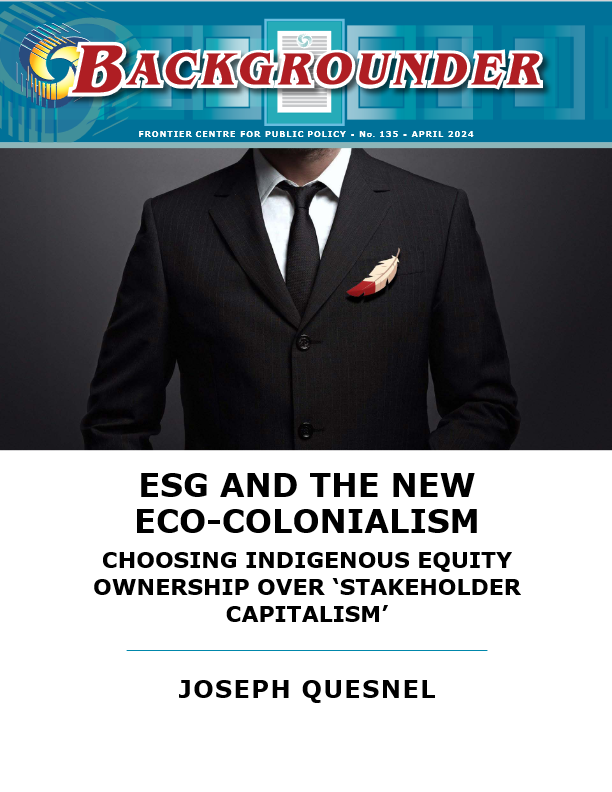ESG investing standards have become all the rage around the world. Big institutional investors and pension funds now race to outdo their competitors in meeting nebulous and politically charged criteria. ESG—which stands for Environment, Social, and Governance—asks businesspeople to take their eyes off the ball of company profitability and shareholder value. Indigenous communities have become interested in ESG investing. However, it has been discovered that ESG standards and metrics have been implemented without Indigenous input or approval. While some Indigenous organizations wish to bring more Indigenous input into the problem to try to salvage ESG, it would be more advisable to abandon ESG altogether.
ESG’s long-standing hostility towards the energy sector due to its climate change agenda often pits ESG investing against First Nations that wish to freely develop energy sources. There is also a case study of ’Canada’s Arctic Indigenous communities that have experienced divestment and lack of investment in necessary infrastructure due to ESG-influenced divestment campaigning. This paper argues that Indigenous communities—rather than try to fix ESG—focus on meaningful direct engagement with resource companies to ensure Indigenous input is respected and full equity ownership is attained.
Download the complete report in PDF Format here. (20 pages)
Joseph Quesnel is a Senior Research Fellow with the Frontier Centre for Public Policy.


